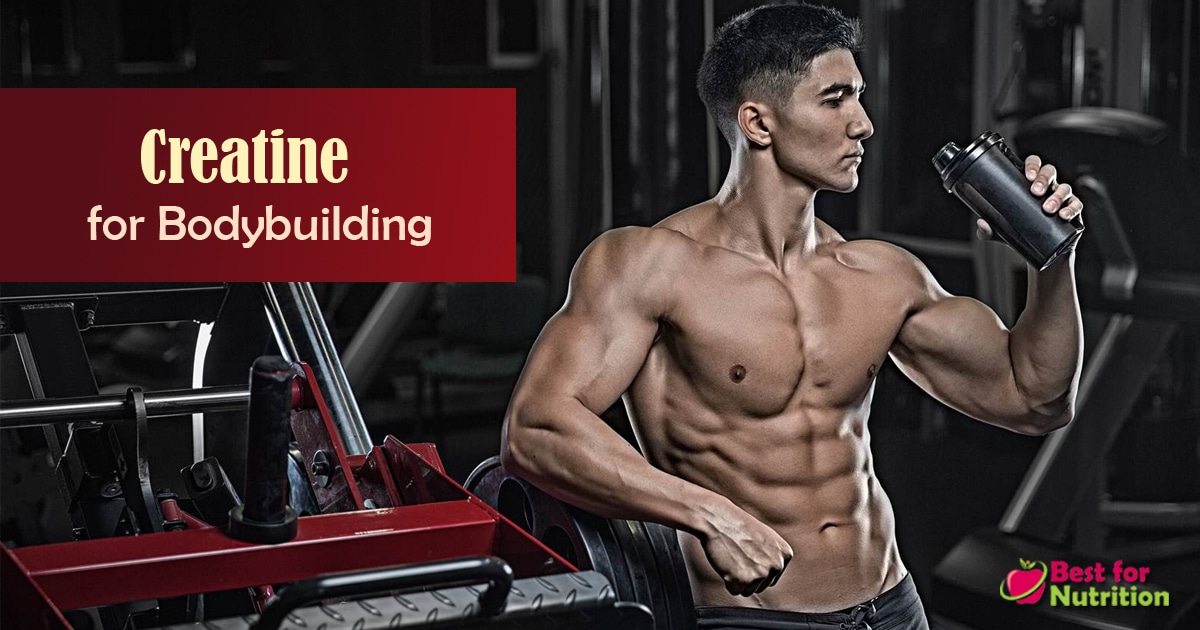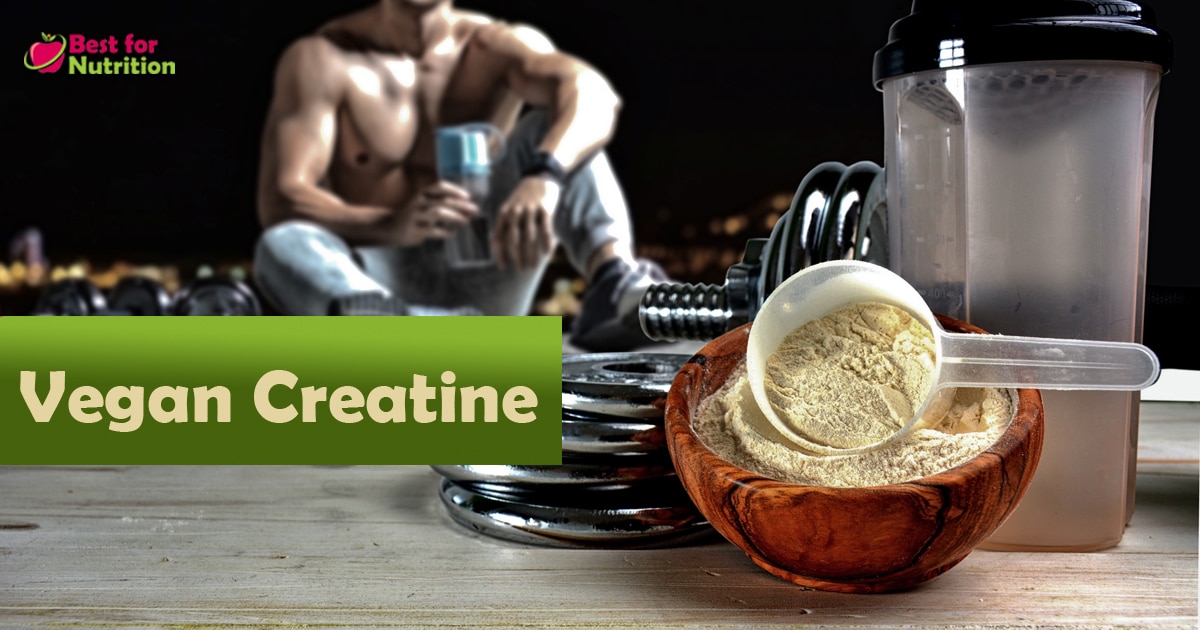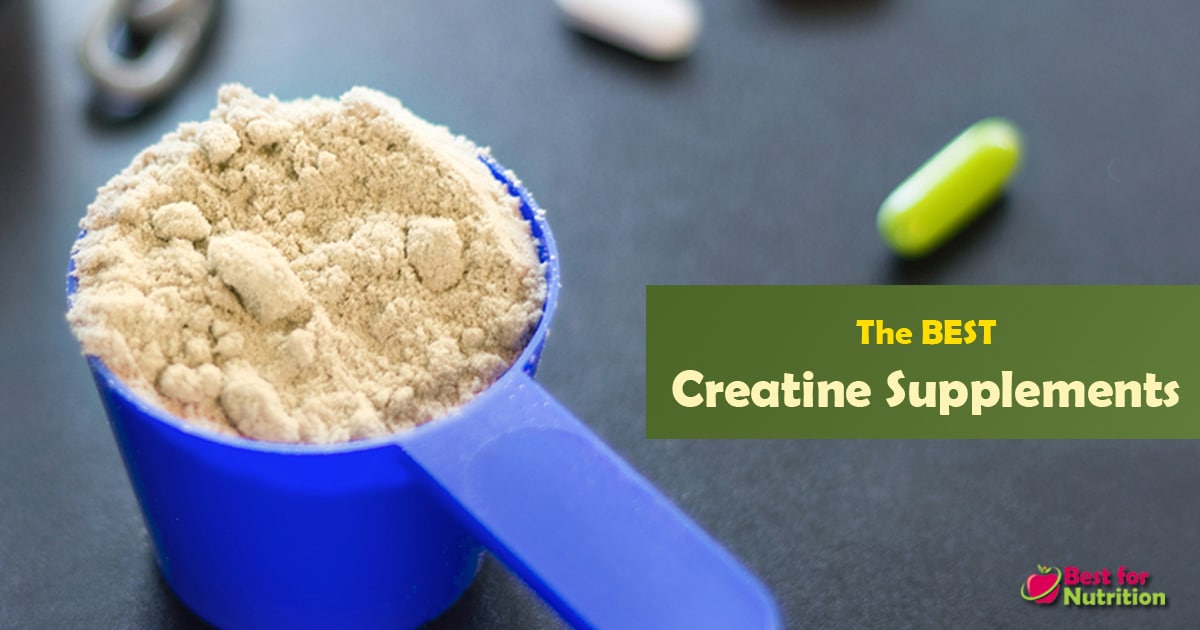We have all heard of creatine and its use as an efficient supplement for weight trainers and bodybuilders.
Being a natural substance, it is a clear favorite among those who are looking to boost their workout performance, whether they are athletes or ordinary gym-goers.
With more women looking into health supplements to help optimize their exercise regimen, creatine with its many health benefits would seem like an obvious option.
Yet, many women have misgivings about using it on a daily basis, because of its known effect on muscle gain, mistaking it to mean a bulkier frame.
With this in mind, this article hopes to illuminate the effectiveness of creatine for women, as well as, attempt to alleviate some of the fears surrounding this popular supplement.

What is Creatine?
Creatine is made of three non-essential amino acids, namely, arginine, glycine, and methionine.
Our body produces a certain amount of creatine naturally (1-2gm), in the liver and kidneys. It is stored in the muscles and brain, in the form of phosphocreatine and acts as a booster source of energy.
You can also obtain it from certain foods, like red meat and fish. In case the amounts gained from the food is not enough, taking creatine supplements is a great way to ensure enhanced workout performance.
Also, vegetarians will surely benefit from them, since there isn’t a good plant source of creatine available.
Summary: Creatine is a natural substance made of three non-essential amino acids. It’s stored in the muscles and brain as an energy booster and can also be obtained from meat and fish.
The Mechanism: How Does Creatine Work?
High school science class has taught us of a molecule known as ATP (Adenosine Triphosphate), which is the “energy currency” of the body. During exercise, ATP gets converted into ADP, releasing energy for work. This depletes the ATP stores.
What phosphocreatine does, is it reconverts ADP back to ATP, ready to be used. This is how it provides an extra boost of energy.
With creatine supplementation, the idea is to shore up the store of creatine in the muscles, helping to ensure a rapid replenishment of ATP. The bottom line, you’re going to be able to kick up your performance with the extra energy! You can work harder, for longer without worrying about tiring easily.
Apart from boosting energy, creatine is also known to increase lean body mass and enhance strength, regardless of gender (1).
A study even revealed that creatine has a positive benefit on delaying the onset of mental fatigue, which makes a lot of difference when doing complex exercises like planning boxing moves or dance routines (2).
Summary: Creatine helps to reconvert ADP to ATP, which is the energy molecule for work. It also helps to increase intensity, strength, and performance, along with delaying muscle and mental fatigue.
From A Woman’s Standpoint: 7 Amazing Creatine Benefits
Creatine has been extensively studied over the years for its uses and benefits. Apart from its role as an ergogenic aid (that enhances energy production), many studies have revealed that creatine has a wider range of actions.
Also, an assessment of the literature as a whole clearly shows that the storage, metabolism, and use of creatine is very different in males and females (3).
So we’re listing a few of creatine’s benefits with an emphasis on how it pertains to us, women.
As an Energy Booster
With creatine helping to replenish the ATP stores in the muscles, supplementing with creatine ensures that you have an extra burst of energy available anytime.
This is especially helpful when performing high-intensity physical activities like HIIT, cycling, jumping, or sprinting (4). This advantage is irrespective of age or gender.
Summary: The boost in ATP and energy fuels your muscles during short high-intensity workouts.
Strength and Performance Enhancer
Creatine supplementation is reported to promote significantly greater gains in strength and performance primarily of high-intensity exercise tasks (5).
A possible reason for this increase in strength is an increased stimulus for muscle growth because of the improved quality of the workouts (6) (7). When we do more, we’re burning more fat!
Summary: The supplementation of creatine combined with resistance training helps to enhance the strength and overall physical performance.
Building Lean Muscle Mass
Many studies have shown that supplementing with creatine increases lean muscle mass and upper and lower body muscular strength during resistance training in both men and women (8).
This effect on muscle mass or muscle gain is one of the things that discourage women from considering creatine supplementation.
A clinical trial, conducted in 2003, however, was able to conclude that creatine improves muscle performance in women without significant gains in muscle volume or body weight (9).
One thing to note is that women are less likely to bulk up like men as we have significantly lower levels of the male hormone testosterone, which is most responsible for muscle growth.
So the fear of looking ‘manly’ because of creatine intake is quite unfounded.
Summary: With respect to women, creatine supplementation increases lean muscle mass without significant gains in muscle volume or weight when compared to men.
Reduce Muscle Damage and Speeds up Muscle Recovery
Creatine has shown to help in reducing the breakdown of muscle protein (10).
A study conducted in 2009 showed that creatine supplementation helped to reduce exercise-induced muscle damage and led to an improved rate of recovery following muscle injury (11).
This helps whether you’re training for any endurance sports or even when trying to make exercise a daily regimen.
Summary: The ergogenic effect of creatine aids in reducing muscle damage and speeds up the recovery which boosts endurance.
Helps in Brain Function
Another organ where creatine gets stored is in the brain, where it also serves to replenish the ATP stores.
Just like the muscles, the brain can get tired doing extensive mental tasks. Creatine supplementation can help in reducing this ‘mental fatigue’ by increasing the store of phosphocreatine in the brain cells.
A review article published in the Journal of Neuromuscular Medicine concluded that supplementation of creatine can be of therapeutic value in the treatment of neurological disorders like Huntington’s and Parkinson’s disease (12).
Summary: The boost in creatine stores in the brain delays mental fatigue and has its value in the treatment of brain disorders.
Creatine During Pregnancy
Pregnancy is a state of heightened metabolic activity as a fetus grows steadily inside the womb. It’s pretty obvious that during those months, the expectant mother will require a greater amount of energy even for basic tasks.
The benefit of supplementing with creatine at this time is that it’ll help keep up the cellular pool of creatine, so the soon-to-be-mom can be a lot less tired and she may not have to completely stop her daily exercise routine.
Another potential benefit can be inferred from many animal studies that showed that when pregnant spiny mice were supplemented with creatine during mid-pregnancy, the fetus was protected from brain injury (13), (14).
Summary: Supplementing with creatine can give pregnant women a much-needed boost of energy and prevent fetal brain damage.
As an Add-On to Antidepressants
Women battling depression have a surprising new ally in creatine.
A study conducted by three universities, published in 2012, showed that women who increased their daily antidepressant medication with 5 grams of creatine responded twice as fast and experienced speedier recovery from the illness than the group who took the antidepressant alone (15).
These researchers concluded that taking creatine under a doctor’s supervision, proved an inexpensive way to improve the treatment outcome of antidepressants.
The theory behind it is creatine’s ability to reduce mental fatigue, which is one of the biggest symptoms of depression.
Summary: Creatine supplements can aid in combating depression as mental fatigue is one of the main symptoms.
Creatine and Bloating
Although there are many reasons to exercise, not the least being to support overall health, the majority of us do it to reach our ideal weight goal, to lose the extra fat!
Most of us shy away from creatine when we hear it causes water retention since most of us already deal with that at certain times of the month!
However, research has shown that this water retention is more pronounced in men compared to women who ingest creatine (16) (17).
Women may experience a certain amount of bloating but that is only about 1-3 pounds, and that is usually during the initial loading protocol of 20gms/day for 5-7 days.
This can easily be offset over time by increasing your workout intensity, which creatine will help achieve!
Summary: The water retention that happens with creatine supplementation is more pronounced in men than women.
Which Form of Creatine Works Best? – Powder, Pill, or Liquid?
Once you’ve decided on taking creatine supplements, the next question that comes is, which form is the best? Creatine supplements come in the form of a liquid, pill /capsule, and powder which can be mixed into your drink. The powder form gets absorbed the fastest so it may be quicker.
Regardless of the form in which you take the creatine, the most extensively studied type of creatine is creatine monohydrate with its benefits (18).
There are other types around, such as creatine ethyl ester, creatine HCL, or even creatine nitrate, but very little research is available on these. Studies that are available that compare them to creatine monohydrate clearly shows that creatine monohydrate is a safer choice (19) (20).
Summary: The powder form gets easily absorbed which makes for rapid availability. The best type of creatine supplement is those that are made of pure creatine monohydrate.
The Recommended Dosage and Instructions for Creatine
Generally, with creatine supplementation, it is recommended to start with a loading phase, which is done to rapidly increase the creatine stores. This is followed by a low daily dose which is maintained even during rest days.
Dosage of Creatine
The dosing program commonly followed is a loading dose of 20gm per day for 5-7days. This can be taken in four increments throughout the day (21). After the loading phase, a daily dose of 3-5gms, taken either before or after the workout, maintains the elevated levels of creatine achieved (22).
Dosage may also depend on your body size and type of diet – vegans and vegetarians may require higher creatine doses to get the desired effect.
Although initial loading protocol is recommended to maximize the creatine level in the muscles, it isn’t necessary to reap its muscle-boosting benefits! So it is okay to skip the loading phase and just allow the creatine stores to gradually increase and maintain the levels.
Instructions for Using Creatine Supplements
Taking a creatine supplement along with some carbohydrate or protein have shown to help retain the creatine better in the muscles (23).
It’s found to increase the uptake of creatine by the muscles better, although whether that increases the performance of the substance is debatable (24).
It’s advisable to keep oneself well hydrated throughout the day when taking creatine supplements.
The question of timing, when to take the supplement, has been studied extensively, and the results are mixed (25), (26). Whether you take them pre-workout or after the workout, it is advised that you take the supplement at the same time every day.
One thing to keep in mind is to take the supplement, even on rest days to ensure that the creatine level stays high.
Summary: Recommended dose of creatine supplement is an initial loading dose of 20gm/day for 5-7days followed by a daily maintenance dose of 3-5gm. It is better to ingest the supplement with a little protein. Hydration is the key.
Risks and Side Effects of Creatine Supplements for Women
There are a few side effects that have been attributed to the use of creatine supplements. These include:
- Gastrointestinal distress
- Muscle cramps
- Nausea, vomiting, and diarrhea
- Worsens kidney function for those with renal disease (as creatine gets metabolized in the kidneys), the excess may strain the kidneys
Yet, a lot of recent studies have disproved many of these claims. A study done at Arkansas State University, in 2003, was able to document that creatine supplementation didn’t increase the incidence of cramping or injury (27).
While an article published in the Journal of Renal Nutrition in 2019, reviewed all research pertaining to the effect of creatine supplementation on the function of the kidneys. Their findings indicate that creatine does not induce any renal damage (28).
Overall, creatine is a fairly safe natural substance when used according to the recommended dosage.
Summary: Creatine may cause gastrointestinal distress and in those who don’t hydrate themselves sufficiently, may experience muscle cramping. Women who have renal problems are likely to strain their kidneys further on using creatine.
Frequently Asked Questions (FAQs)
Is “Loading” Necessary While Using Creatine Supplements?
The idea behind the “loading protocol” is to pump up the level of creatine in the muscles. This is to maximize its store in the shortest time possible, within a week or less. Although, it isn’t necessary to benefit from the use of creatine.
So it is totally up to you, whether you want to skip that phase and just go for the daily dosage of 3-5gm of creatine and gradually increase the creatine store or not.
Does Creatine Work the Same for all Women?
Concerning creatine supplementation, there has been proposed a phenomenon called “creatine non-responders”. Basically, some respond to the supplementation of creatine (creatine responders) and some don’t (non-responders).
This phenomenon could be related to the type of muscle fiber and the width of the cross-sectional area of each fiber, that is unique to each individual.
Also, women have more creatine stores in the muscles than men, Therefore, many may require more creatine than others, which could contribute to their differing response (29).
Will I Bulk up if I Use Creatine?
Usually, the water retention caused by the sudden increase of creatine in the muscles, as a result of creatine supplementation, happens during the initial loading phase. The bulking visible then is attributed to that.
This increase is only about 2-3 pounds, which will gradually go as you continue to intensify your exercise regimen.
You can avoid this by choosing to skip the loading phase and just opt for a gradual increase in creatine by the suggested daily dose of 3-5gms of creatine.
Can I Take Creatine While Pregnant?
Although there is very little research available on the effect of creatine consumption during pregnancy and breastfeeding, all the current benefits of creatine can lead us to assume that creatine supplementation would be beneficial for the fetus and newborn as well (30).
Some animal studies have shown that creatine can protect the fetal brain, diaphragm, and kidney from hypoxia which can lead to brain injury (31).
Yet, since these effects haven’t been proved with human pregnancies, it is best to speak to your obstetrician before taking any supplements if you suspect you’re pregnant.
The Final Note
With all this information, we hope you see that creatine is not just for men!
Women who want to optimize their time at the gym or athletes who want to get the best of their exercise routine can safely consider backing up their workout with creatine supplementation.
Creatine has been proven to enhance your workout performance and help keep you mentally and physically sharp and healthy.
While supplementing, just make sure that the recommended dosages are followed and they are combined with a consistent and regular exercise regimen.
Also, taking the supplement with plenty of fluid will ensure that the body stays hydrated. Finally, it is safe to say that creatine is here to stay!





